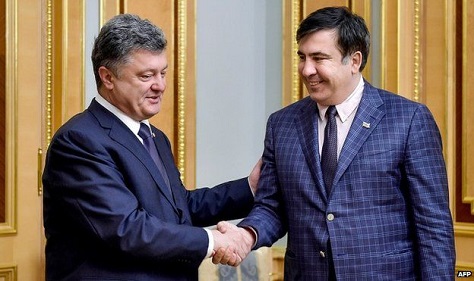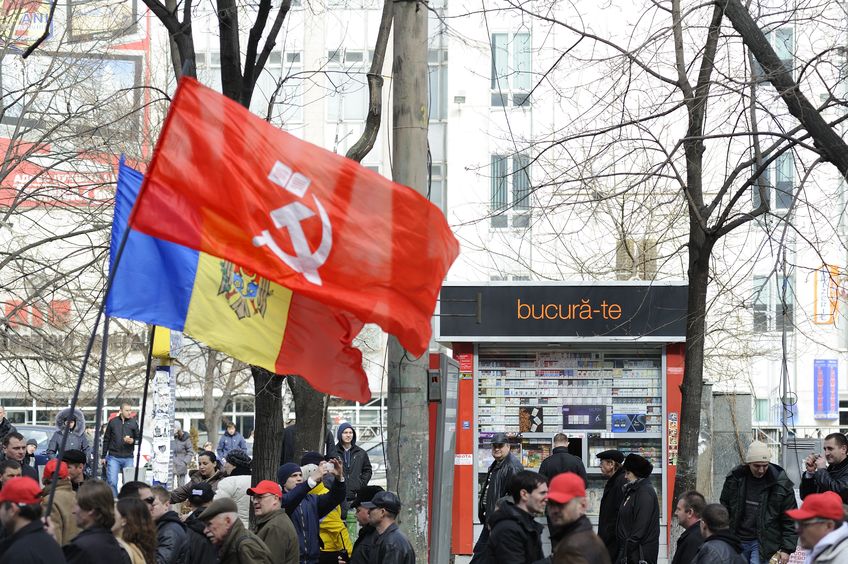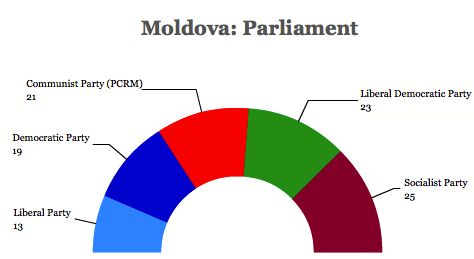The last we’d heard of former Georgian president Mikheil Saakashvili, he was enjoying a hipster lifestyle in Williamsburg. ![]()
![]()
Increasingly, though, Saakashvili has become a persona non grata in Georgia, where he held power between 2004 and 2013, ushering in liberal reforms to a country sorely in need of liberalization. When an umbrella coalition of opponents, led and financed by Bidzina Ivanishvili defeated his ruling party in late 2013, Saakashvili recognized the loss and facilitated the ensuing political transition, which coincided with the constitutional change from a strong presidential system to a parliamentary system.
So it was quite a surprise to see Saakashvili emerge last weekend in Saturday as the newly minted governor of the Odessa region.
We live in an era where Stanley Fischer can obtain Israeli citizenship, lead its central bank and then return to the United States to become vice chair of the Federal Reserve — or where Mark Carney can switch roles from heading the Bank of Canada to the Bank of England. So why shouldn’t a well-regarded former president be permitted, especially at the young age of 47, to take on a politically difficult role in a nearby country — especially when the struggles facing Georgia and Ukraine are so similar?
In order to assume the role as Odessa’s new governor, Saakashvili was obligated to give up his Georgian citizenship and accept from Ukrainian president Petro Poroshenko an offer of Ukrainian citizenship. Saakashvili previously refused to do so when Poroshenko earlier offered him a position as deputy prime minister.
A post-presidential exile from Georgia
As Saakashvili himself has noted, however, Georgian citizenship entitles him to little more than six square meters in prison. That’s because the current government has charged Saakashvili with multiple offenses, all of which seem precariously motivated by politics, not the rule of law. Russian prime minister Dmitry Medvedev called the announcement a ‘circus,’ but the reaction from Georgia’s current leadership was even more incendiary. Tina Khidasheli, the country’s defense minister, attached Saakashvili for treason, and the country’s president, Giorgi Margvelashvili, called the move an ‘insult’ to Georgia and its government.
The step could complicate Saakashvili’s plans to lead the opposition in the 2016 parliamentary elections in Georgia or compete for the presidency in 2018.
As president, there’s no doubt that Saakashvili reduced corruption and improved the underlying Georgian economy and, in stepping down with grace, established a strong precedent for democratic transition and the rule of law. His largest miscalculation came in 2007 and 2008, when he escalated military and diplomatic tensions with Russia. With high hopes for NATO and European Union membership, and believing Western forces would ultimately come to his aid, Saakashvili’s clash with the Russian military led to the quasi-annexation of two breakaway republics — Abkhazia and South Ossetia. Many of the current government’s criminal charges against Saakashvili today spring from the debacle. Continue reading Saakashvili makes a political return — to Odessa


